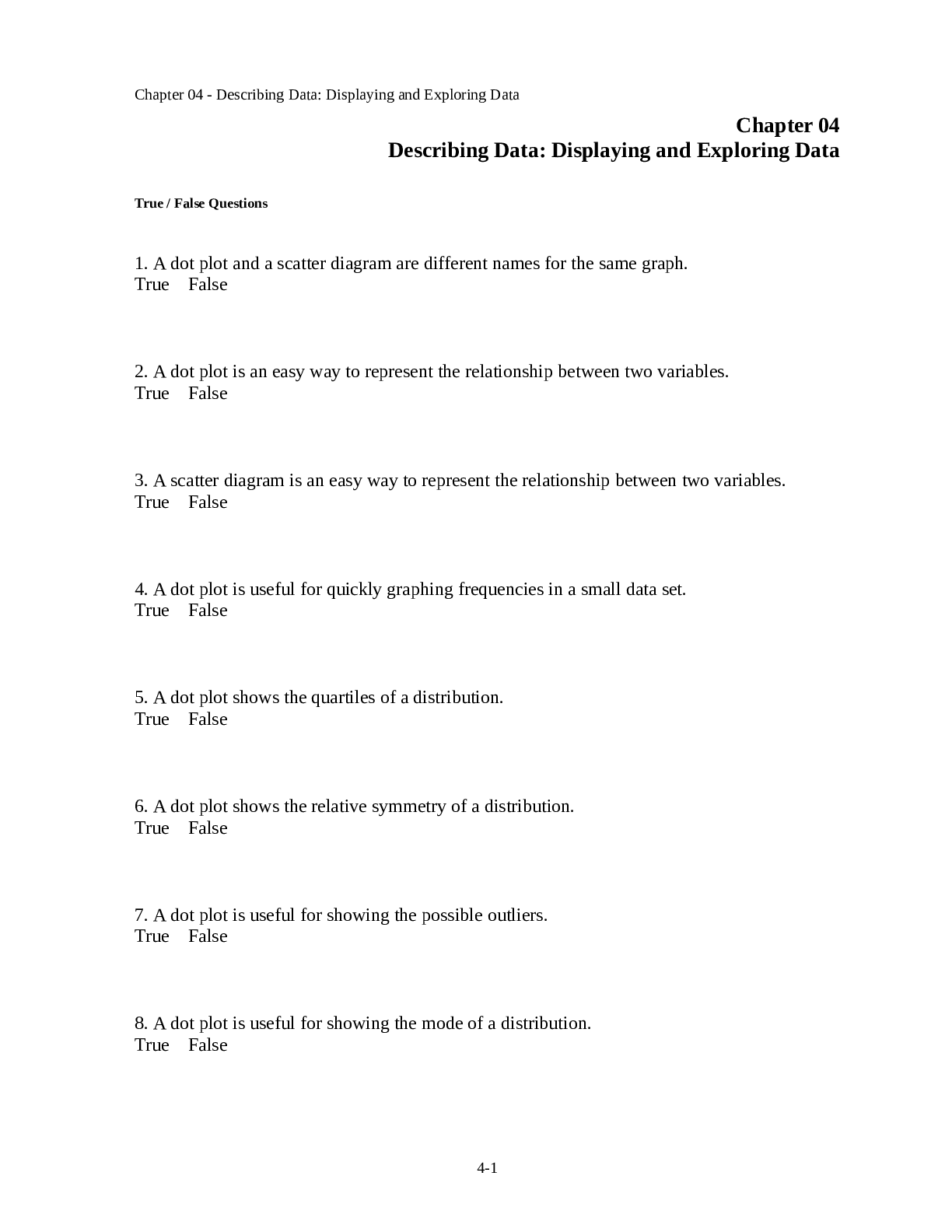Psychology > TEST BANK > PYC3703 Test Bank| Over 500 Questions and Answers All Correct. Get Your Grade A+ (All)
PYC3703 Test Bank| Over 500 Questions and Answers All Correct. Get Your Grade A+
Document Content and Description Below
Chapter 1 TEST BANK 1. Which of the following would not be studied by a Cognitive Psychologist? a. whether people can pay attention to multiple stimuli at once without losing accuracy b. if adver... tising using animation is more memorable than advertising using no animation c. whether a group of people present affect how much is given to charity d. if the reading speed of college graduates differs from that of high school graduates ANS: c 2. The combination of rational with empirical methods so as to get the “best of both worlds” represents, in dialectical terms, a(n) a. thesis. b. antithesis. c. synthesis. d. antisynthesis. ANS: c 3. Part of dialectic thinking is when a statement of belief is proposed. This statement would be called the . a. antithesis b. synthesis c. thesis d. pragmatics ANS: c 4. This part of dialectic thinking is when a counterstatement to previous beliefs emerges. This counterstatement would be called the . a. antithesis b. synthesis c. thesis d. pragmatics ANS: a 5. The philosopher who advanced the notion of a dialectic was . a. Plato b. Hegel c. Descartes d. Aristotle ANS: b 6. A rationalist a. uses logical analysis to understand the world and people’s relations to it. b. is a follower of Aristotle’s empiricist philosophy. c. supports the idea of monism. d. believes that knowledge is acquired through experience and observation. ANS: a 7. Rationalism is to as empiricism is to . a. empirical evidence; theory b. theory; empirical evidence c. manipulation; measure d. hypothesis; theory ANS: b 8. This particular approach emphasizes logical analysis as the means to acquiring new knowledge. a. Tabula rasa b. Synthesis c. Rationalist d. Empiricist ANS: c 9. An empiricist a. believes that knowledge is acquired through experience and observation. b. is a follower of Plato’s rationalist philosophy. c. supports the idea of mind-body dualism. d. believes that the mind and the body are separate entities. ANS: a 10. This particular approach emphasizes empirical evidence as the means to acquiring new knowledge. a. Rationalist b. Monist c. Empiricist d. Nativist ANS: c 11. Theresa, a judge, does not accept circumstantial evidence as evidence in her court. Theresa will not convict anyone of a crime, based on general principles of anticipated behavior of people brought to court. Instead, Theresa allows only evidence that she can see, or “hard,” observational evidence, to be used in a prosecution. Theresa could be referred to as a(n) a. Monist b. Empiricist c. Rationalist d. Nativist ANS: b 12. Elma, an automobile factory worker, learns how to install a car air conditioner by watching a fellow worker install the part. The knowledge Elma has just acquired is acquired knowledge. a. experimentally b. reductively c. innately d. empirically ANS: d 13. Psychology is sometimes viewed as a merging of a. philosophy and monism. b. rationalism and physiology. c. physiology and empiricism. d. philosophy and physiology. ANS: d 14. Descartes is known for having been a(n) a. functionalist. b. behaviorist. c. empiricist. d. rationalist. ANS: d 15. A philosopher who largely rejected acquisition of knowledge by empirical means was a. John Locke. b. Aristotle. c. David Hume. d. René Descartes. ANS: d 16. Which of the following people supported the rationalist view and largely rejected the pure empirical view? a. Kant b. Aristotle c. Descartes d. Locke ANS: c 17. refers to Locke’s belief that all knowledge is gained empirically, beginning at birth, when our minds are a blank slate. a. Innate b. A priori c. A posteriori d. Tabula rasa ANS: d 18. Immanuel Kant a. believed in an integration of rationalism and empiricism. b. rejected completely all forms of rationalism and empiricism. c. believed only in rationalism. d. believed only in empiricism. ANS: a 19. The goal of structuralism was to understand the “content” of the mind by a. synthesizing constituent parts of perceptions. b. analyzing perceptions into their constituent parts. c. observing responses to various stimuli. d. evaluating other schools of thought to provide a “structure” for the new movement. ANS: b 20. Wilhelm Wundt’s idea of involved looking inward at the contents of one’s consciousness. a. projection b. introversion c. repression d. introspection ANS: d [Show More]
Last updated: 11 months ago
Preview 1 out of 119 pages

Also available in bundle (1)
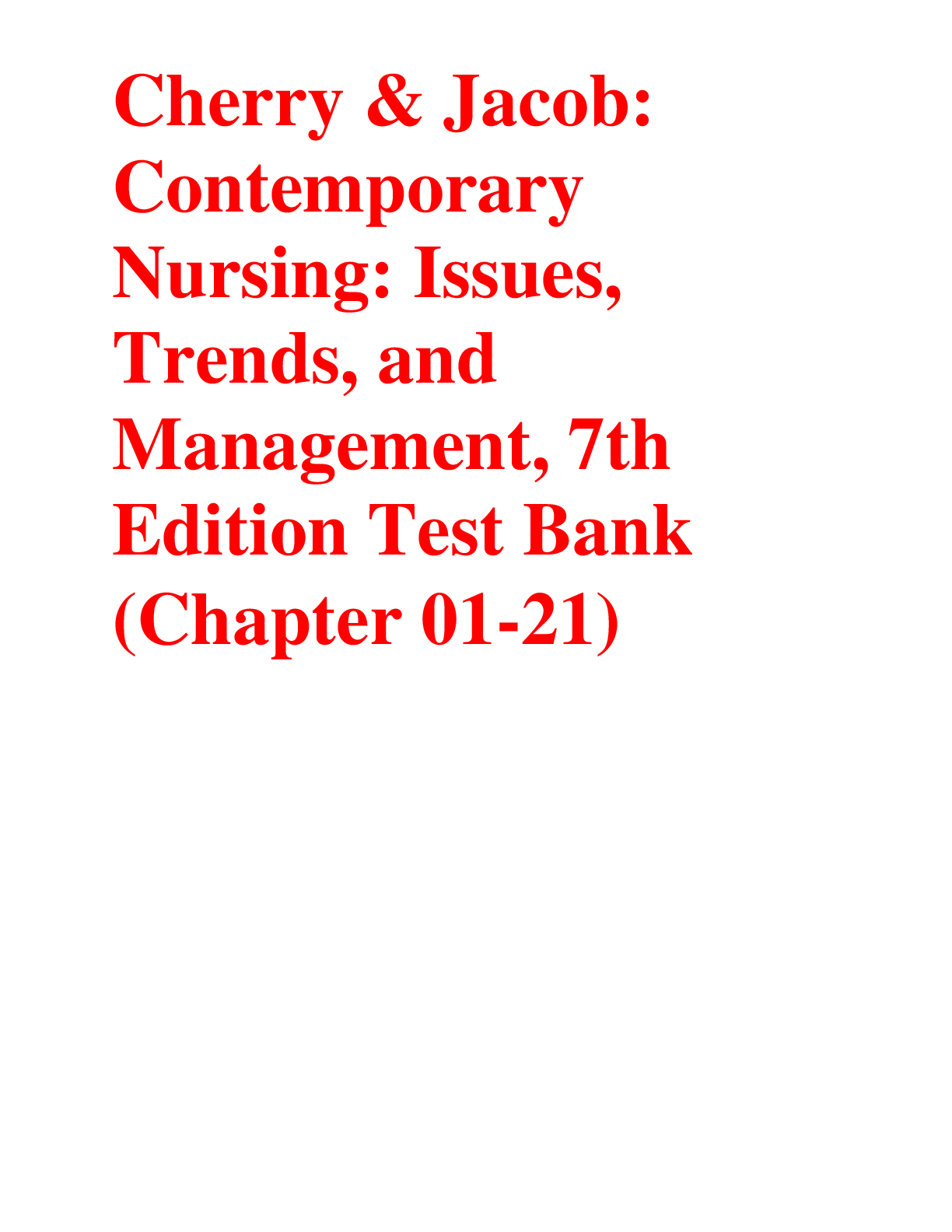
NURSING TEST BANKS BUNDLE
NURSING TEST BANKS BUNDLE
By Quiz Merchant 2 years ago
$700.5
102
Reviews( 0 )
Document information
Connected school, study & course
About the document
Uploaded On
May 04, 2021
Number of pages
119
Written in
Additional information
This document has been written for:
Uploaded
May 04, 2021
Downloads
0
Views
105

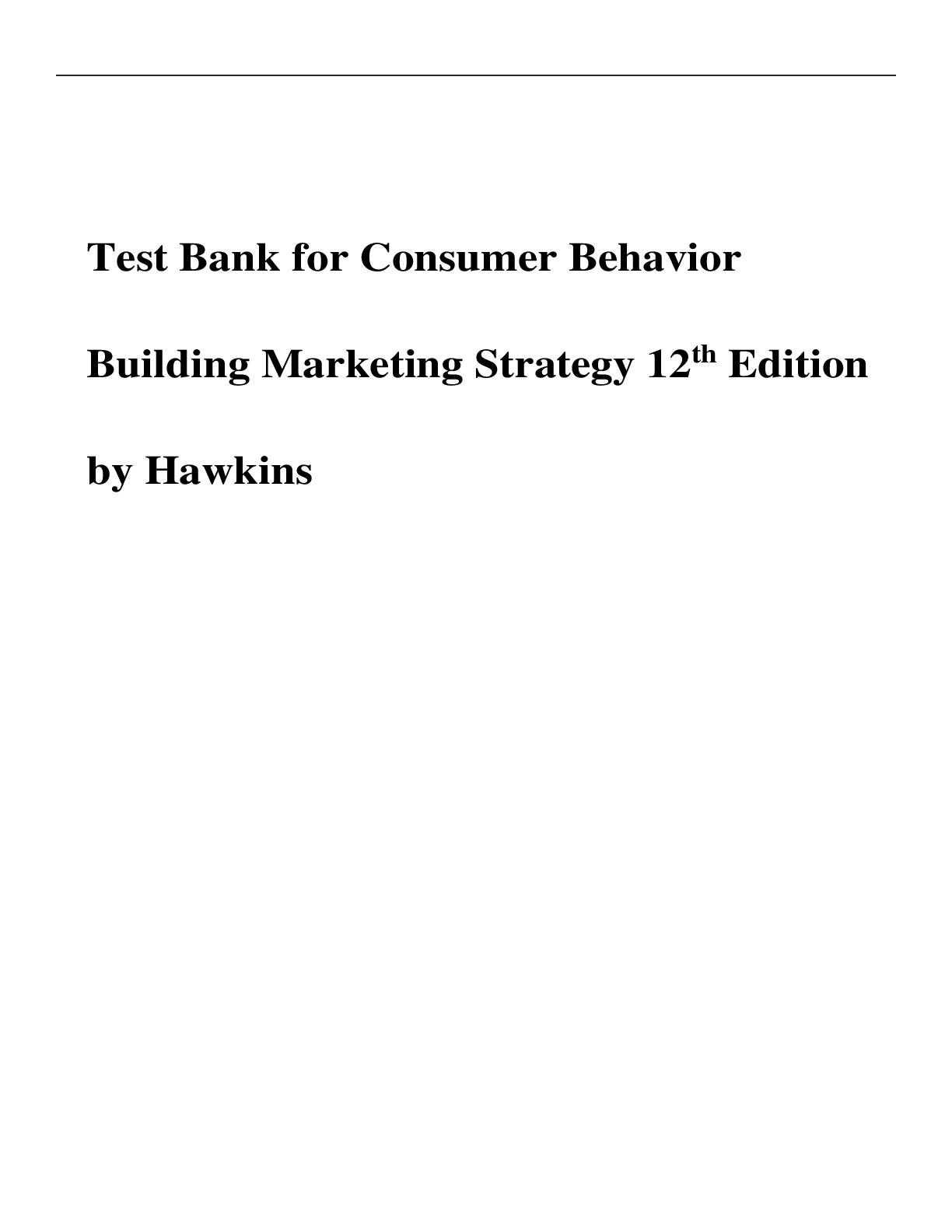

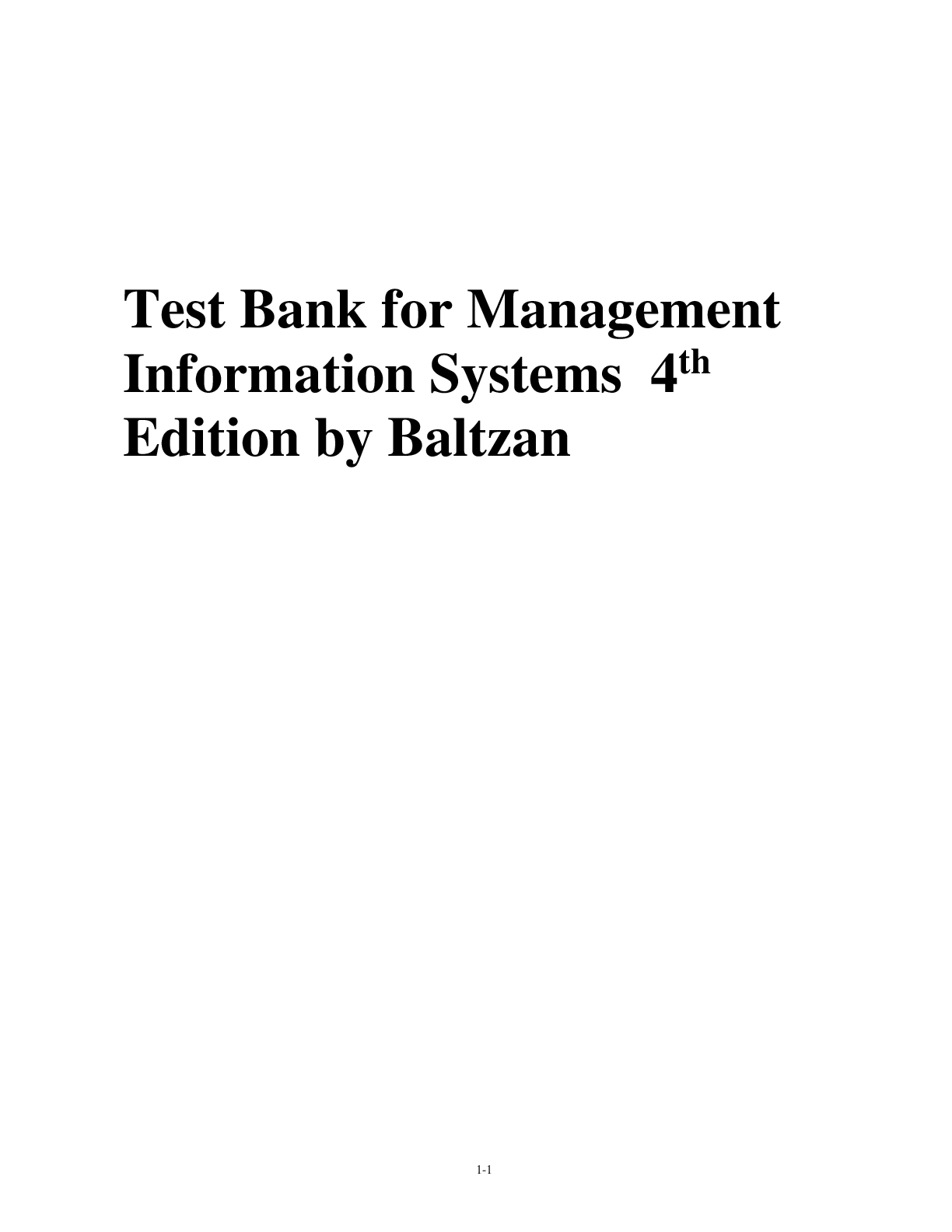
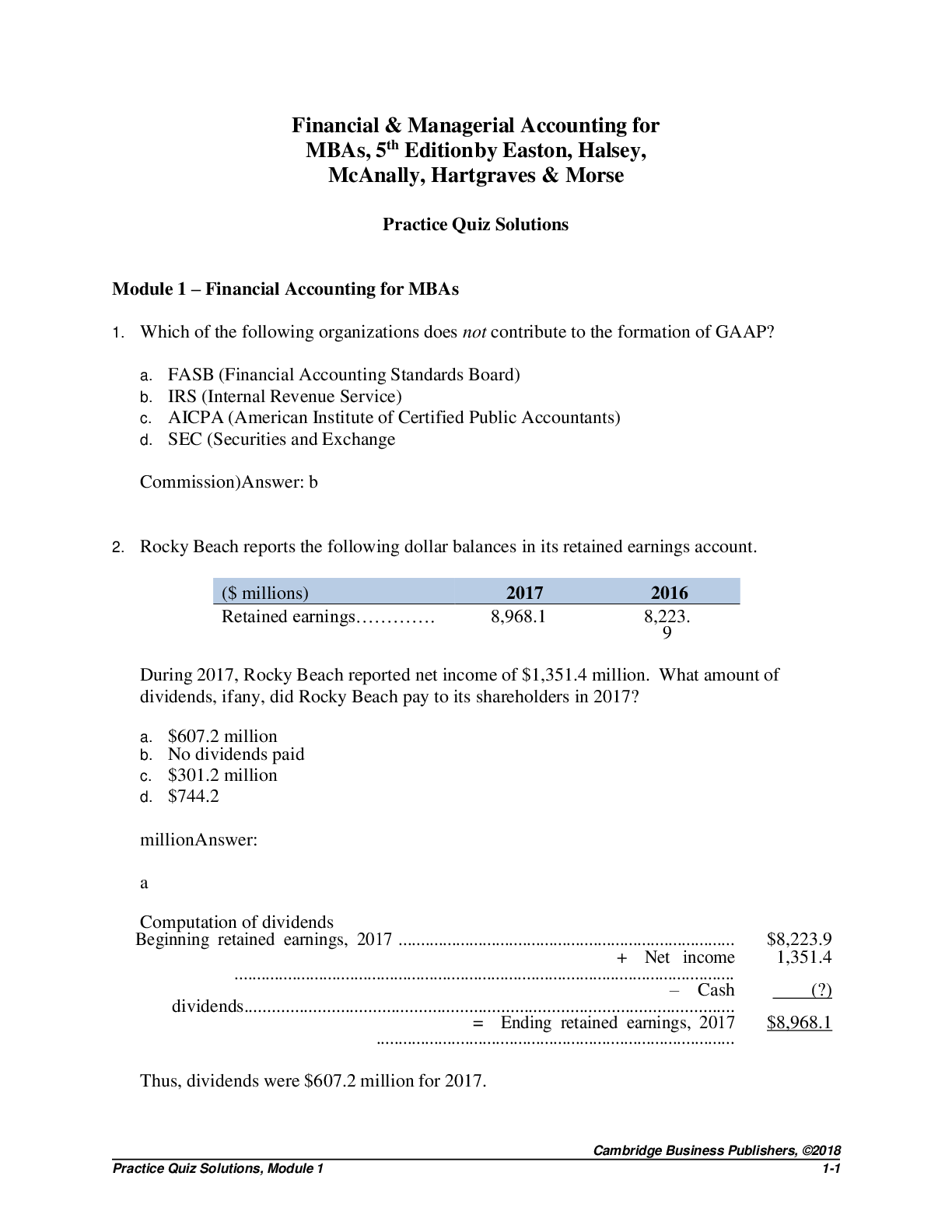




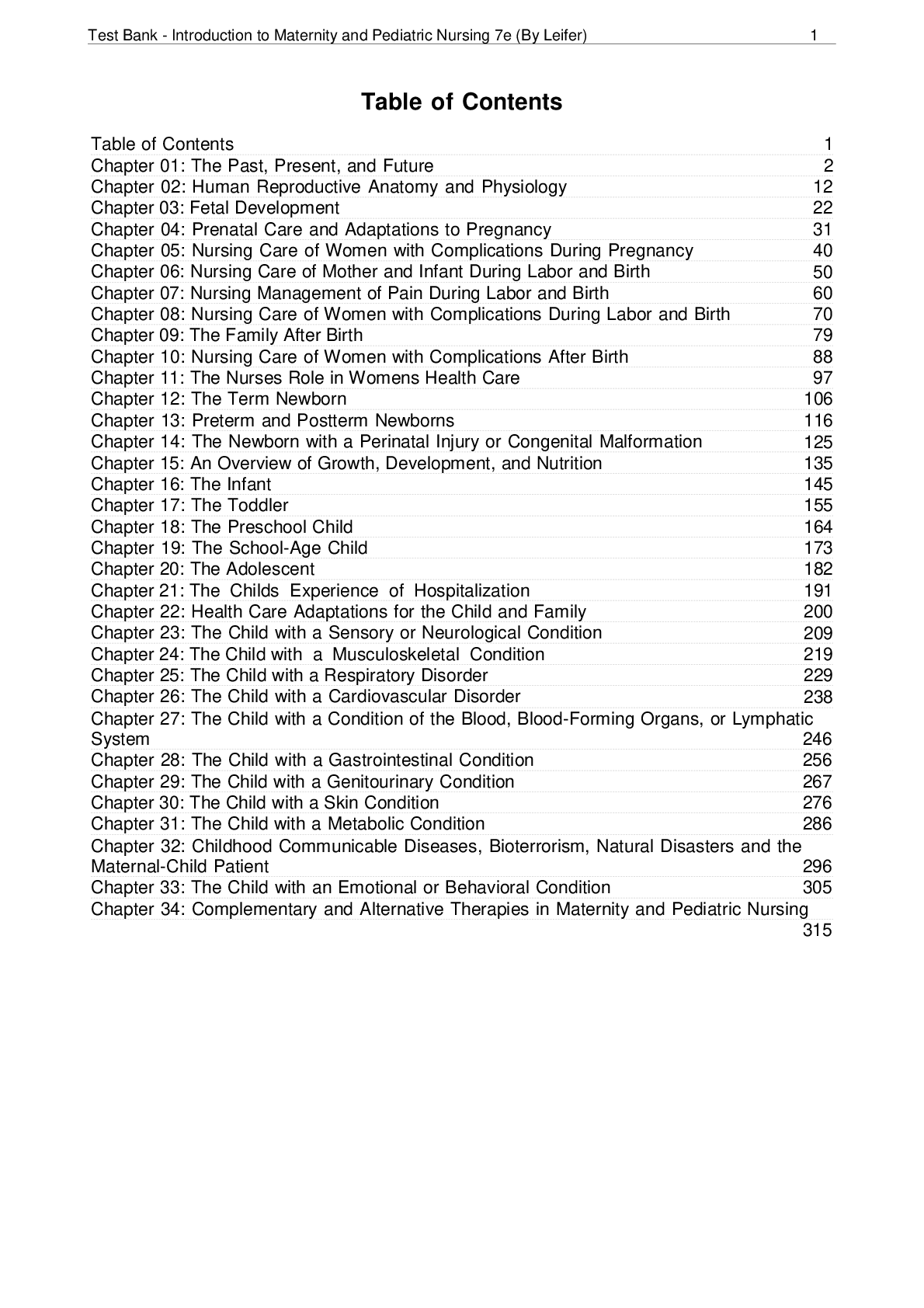
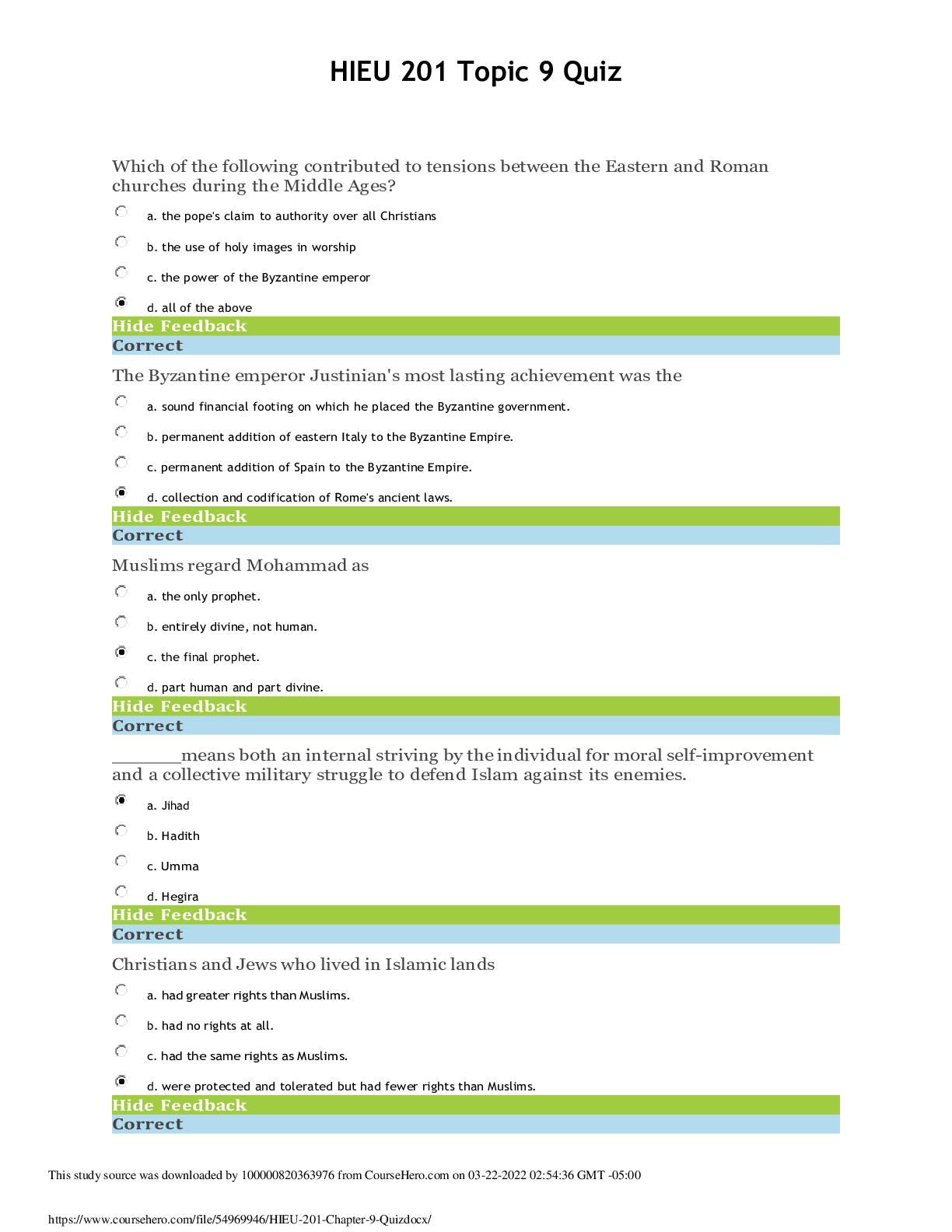
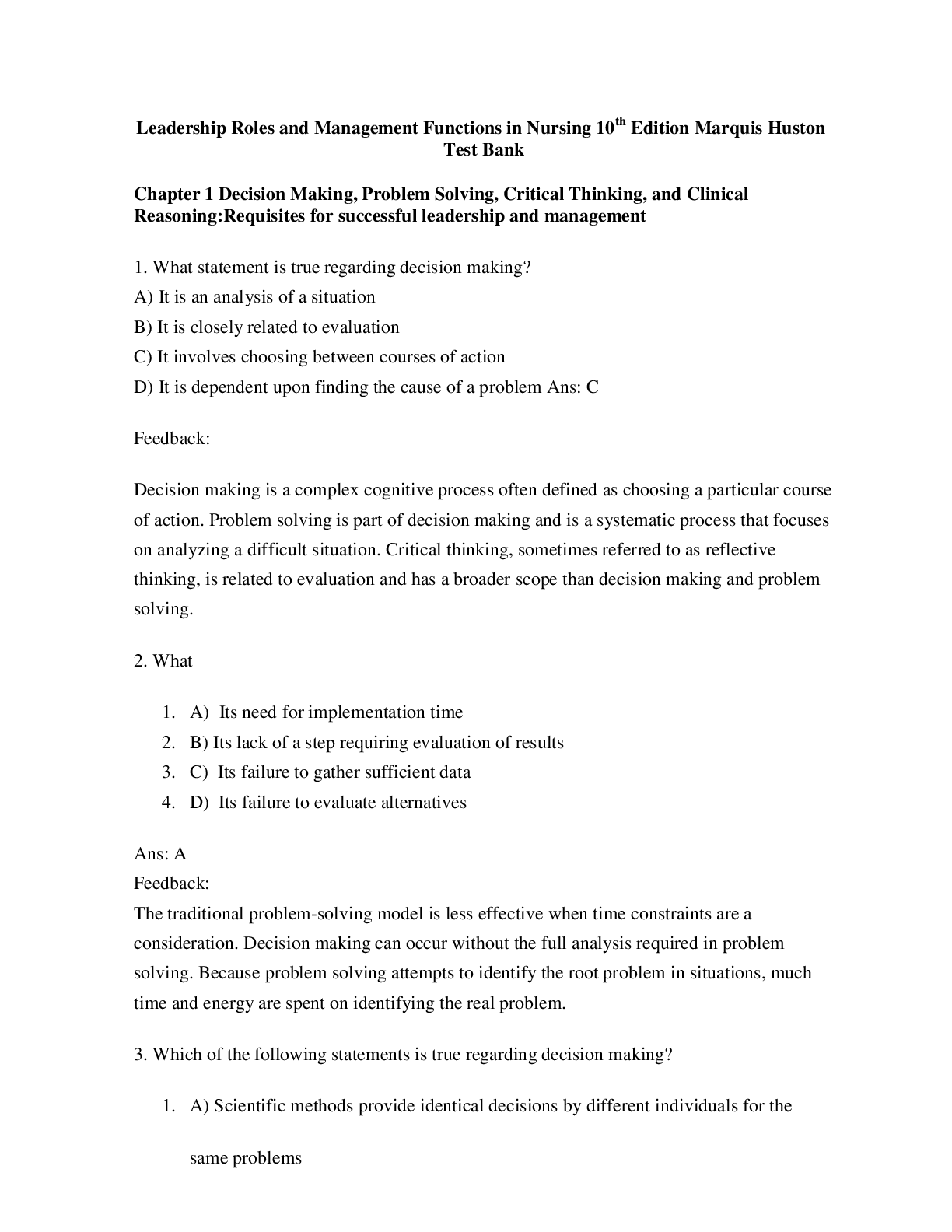



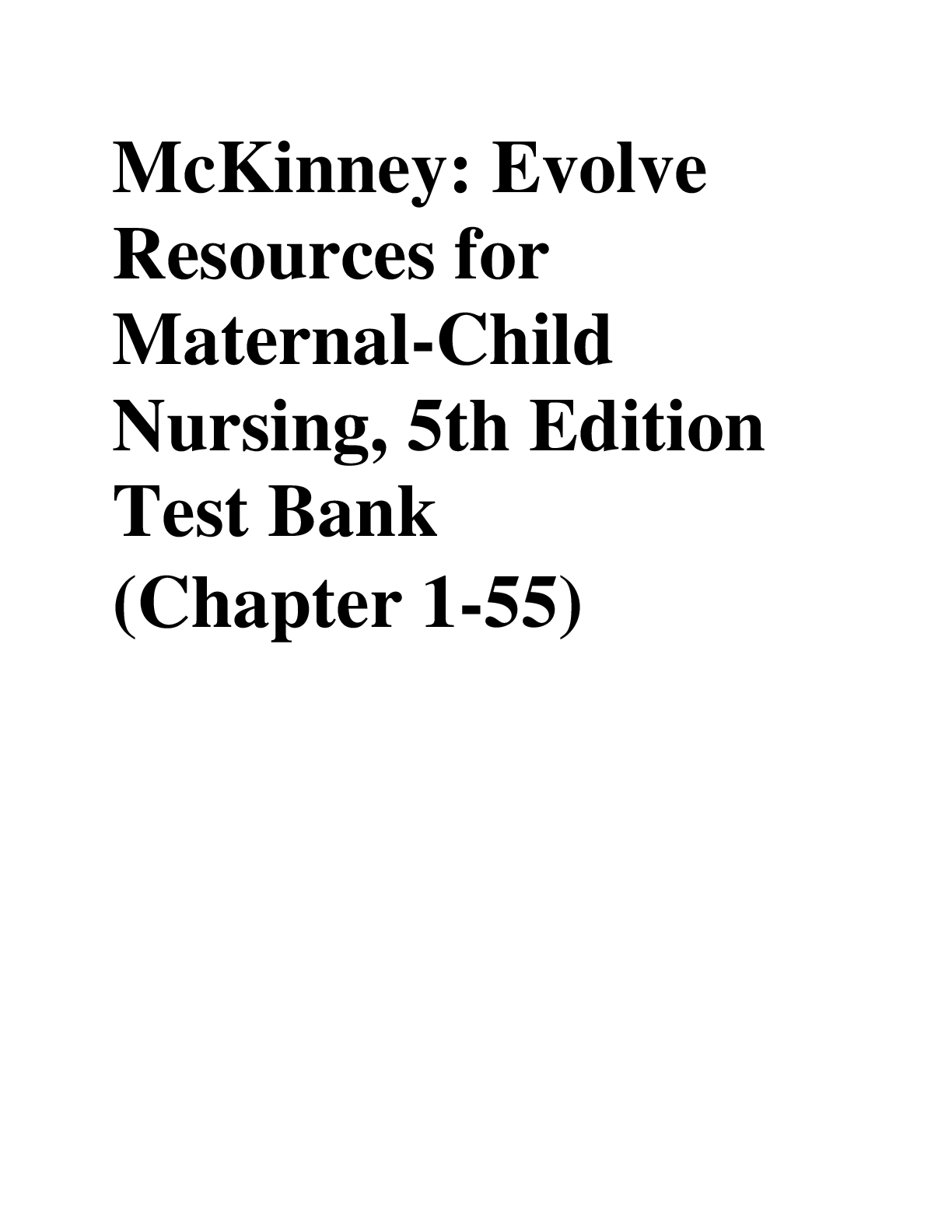
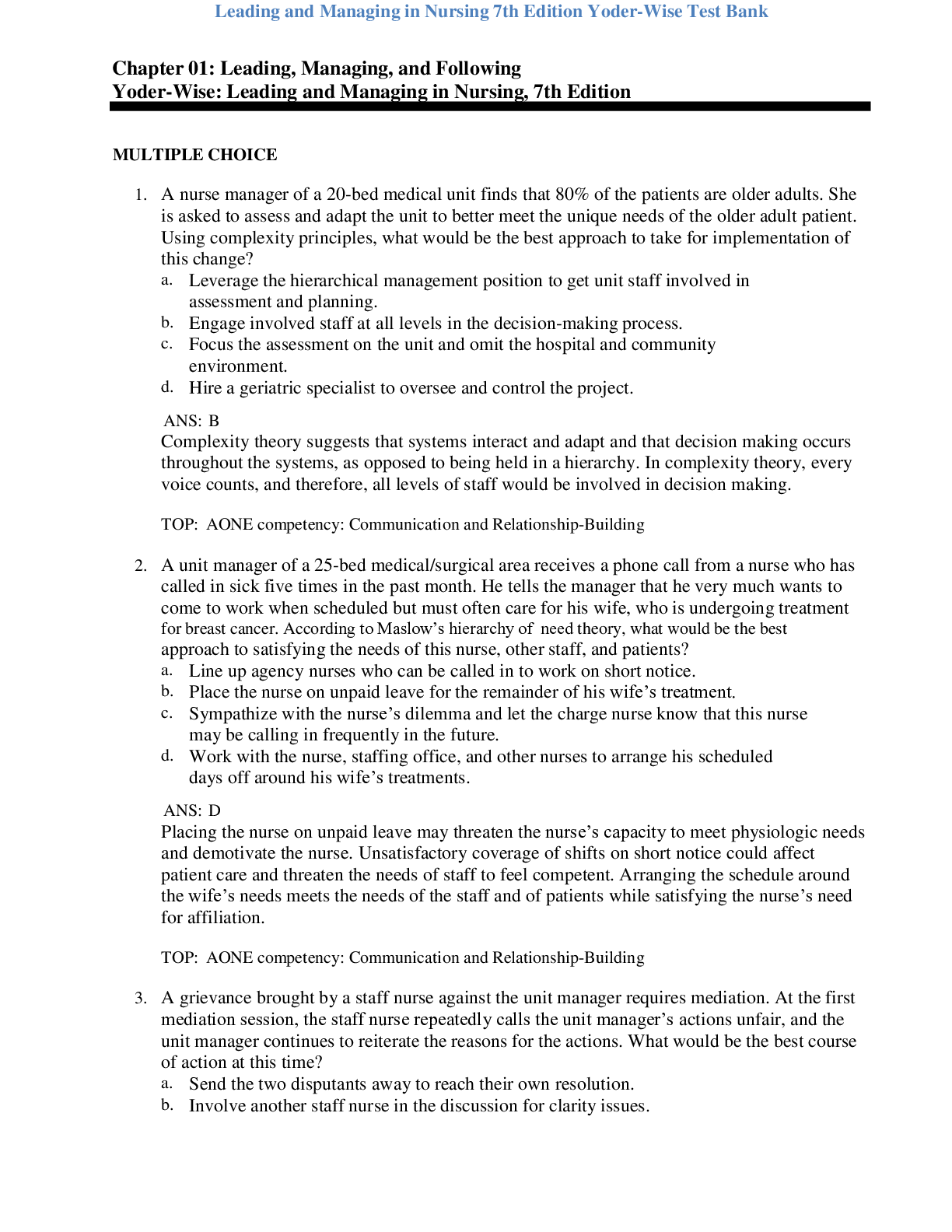
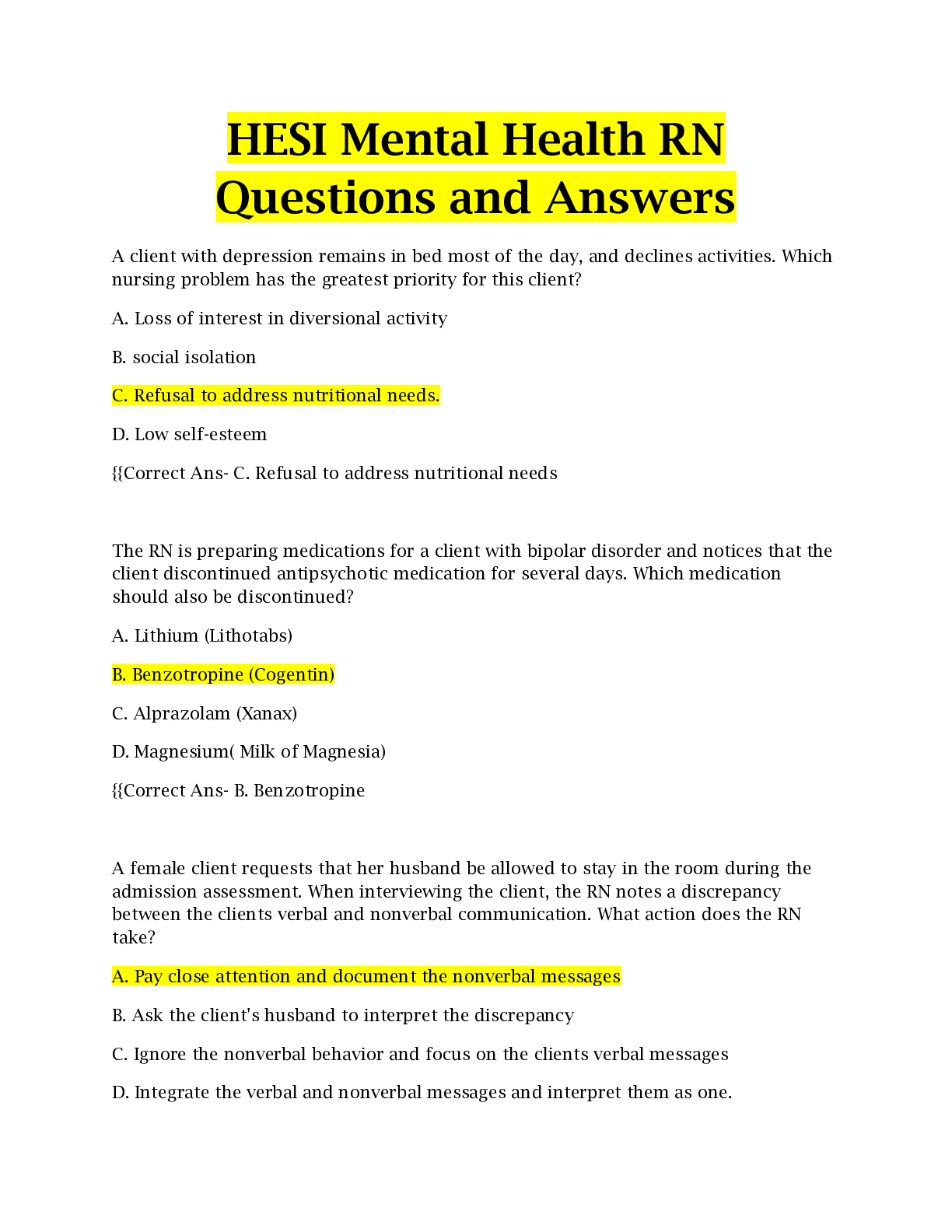
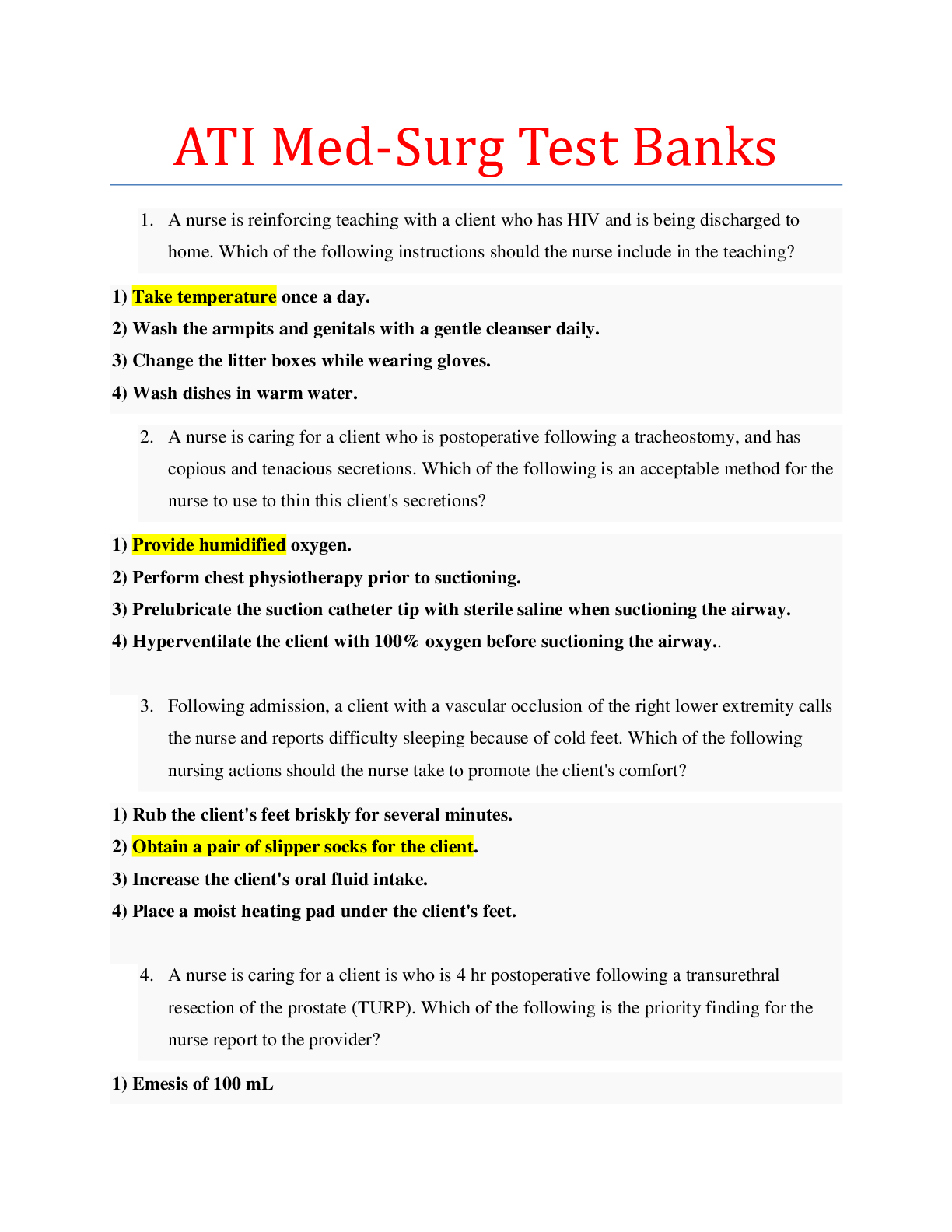

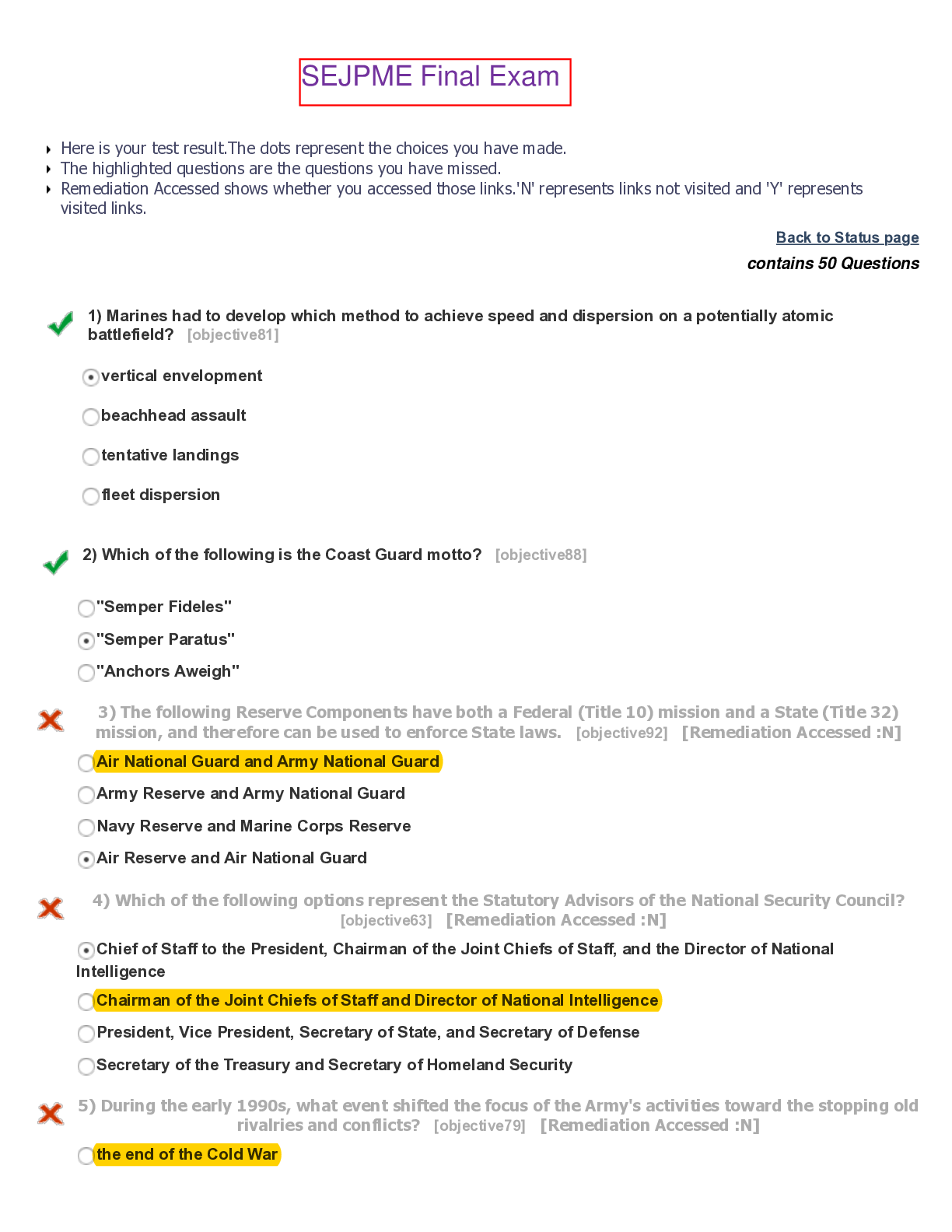
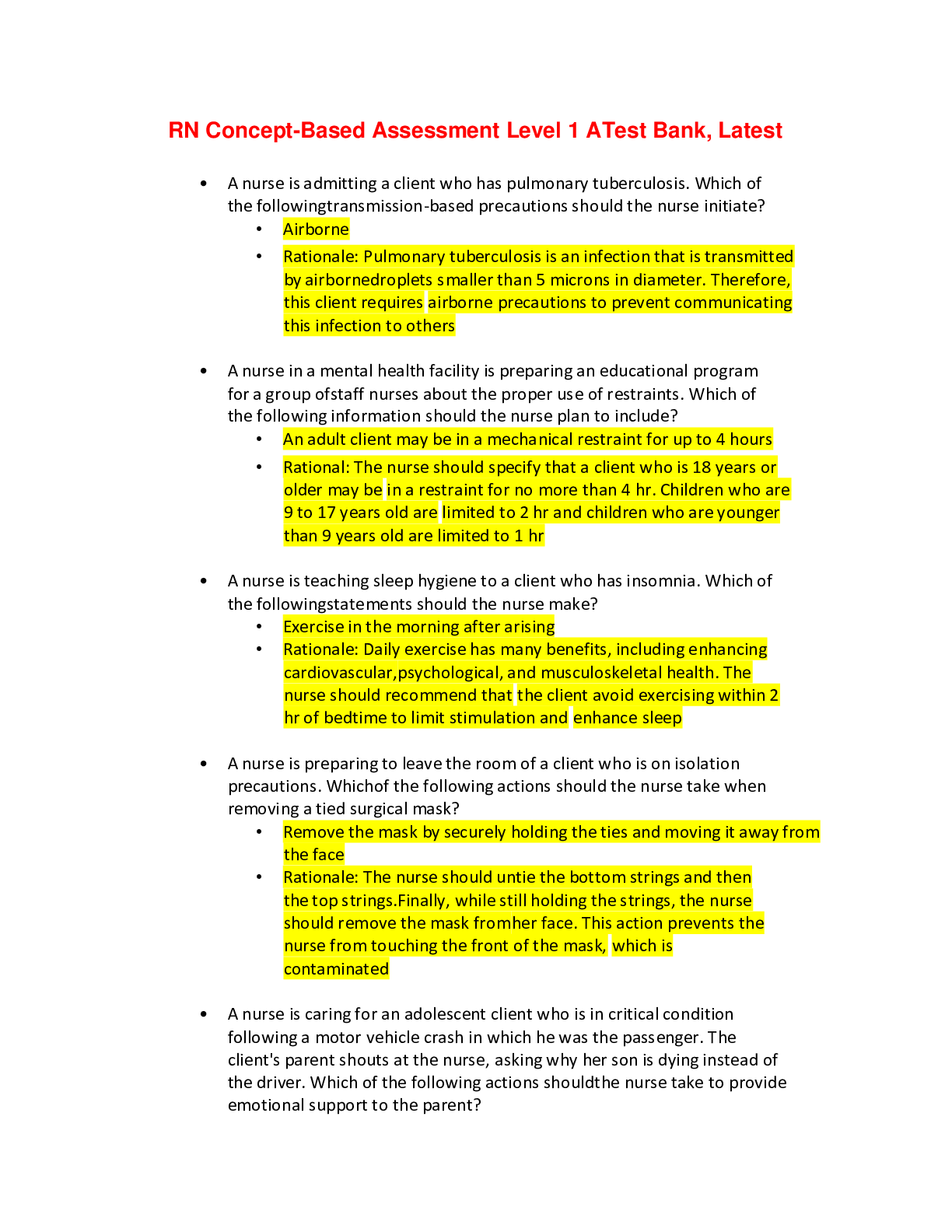
.png)
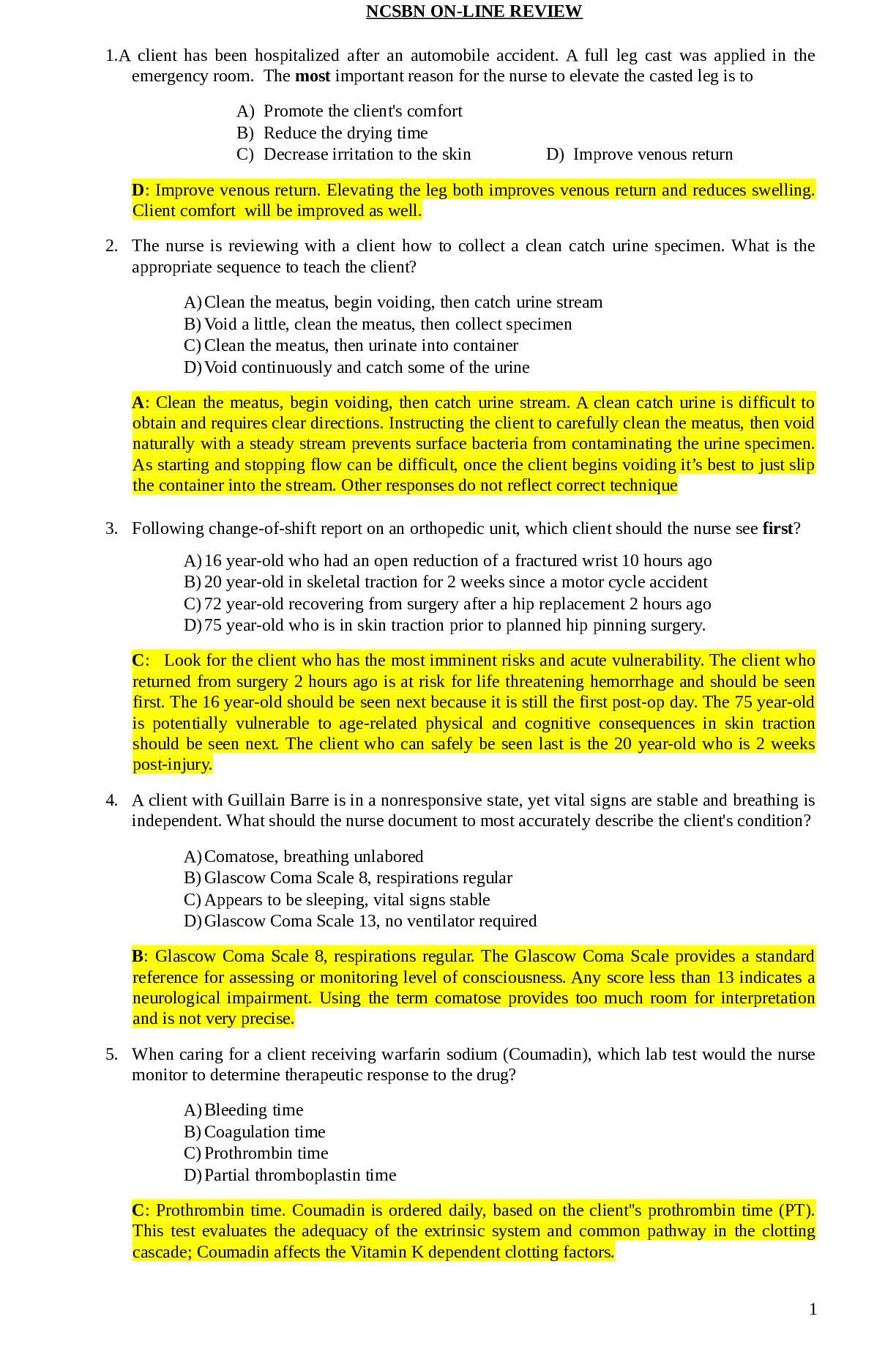
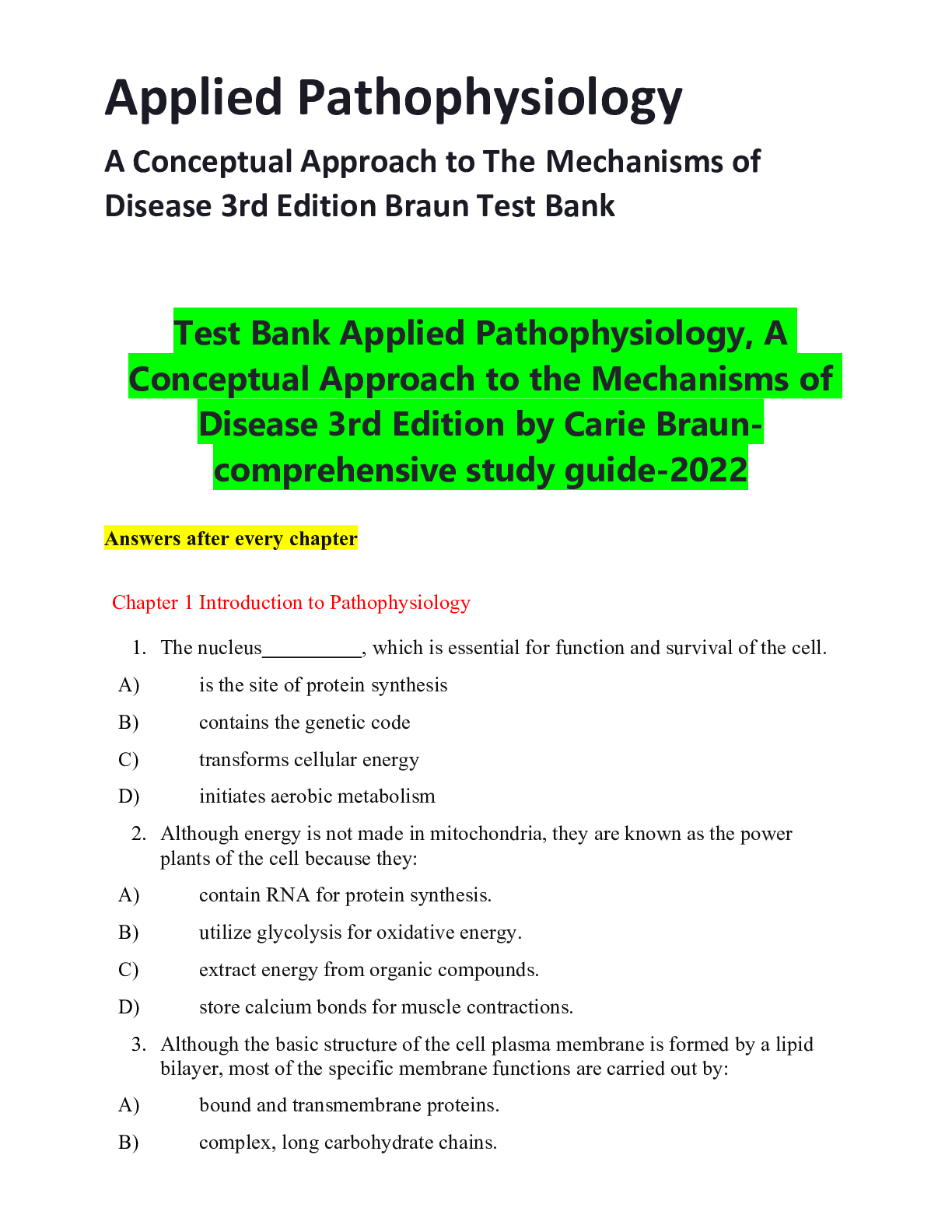

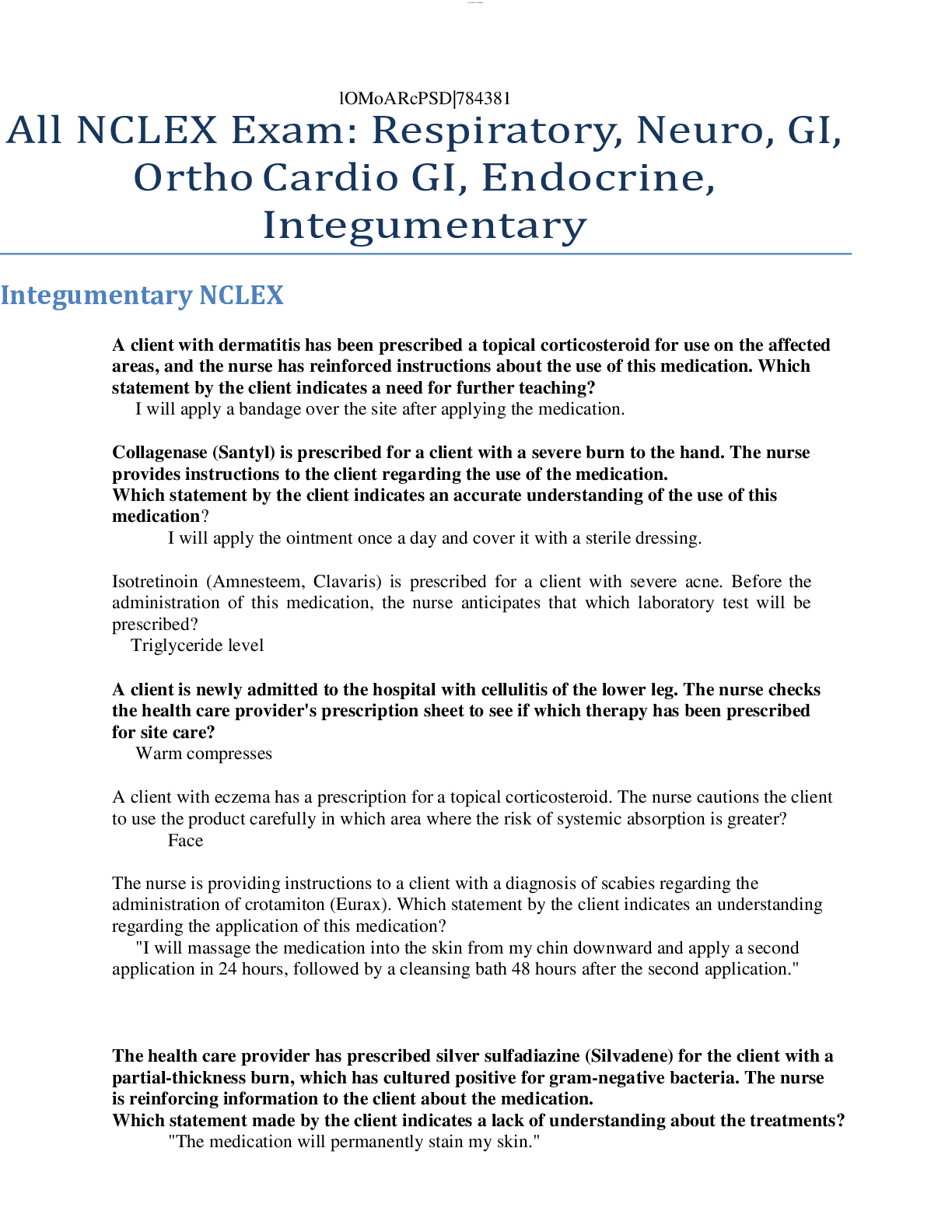

.png)
.png)

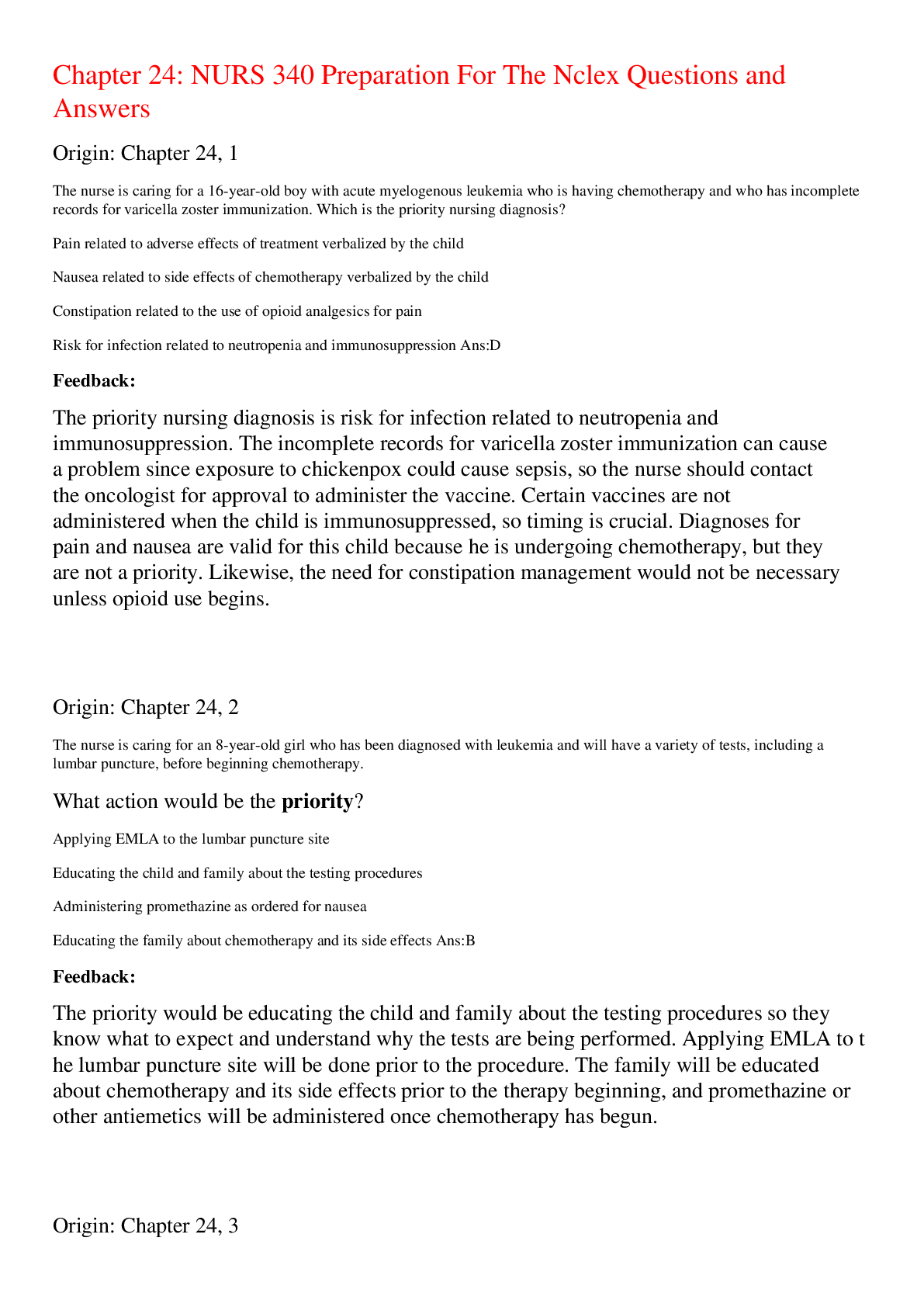

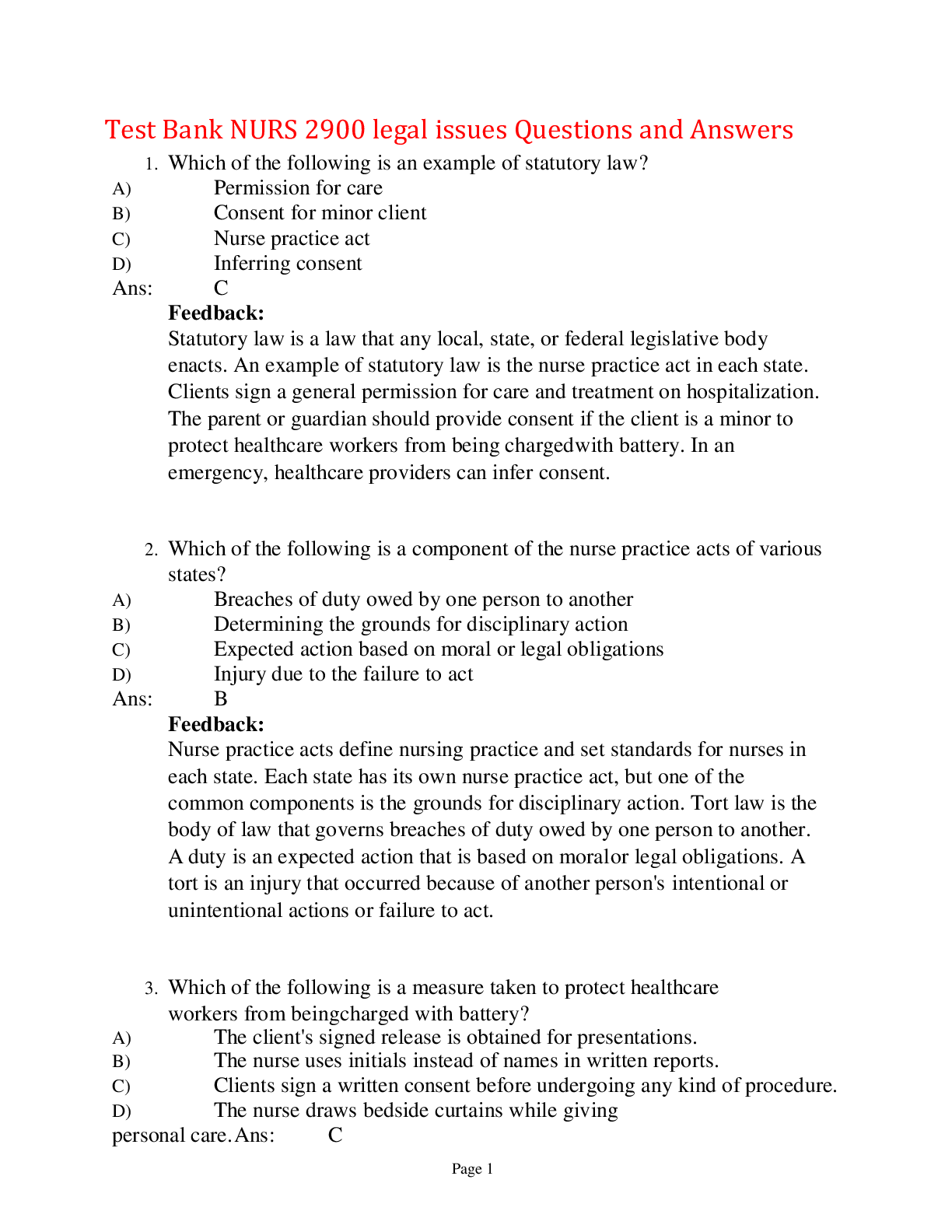

.png)
